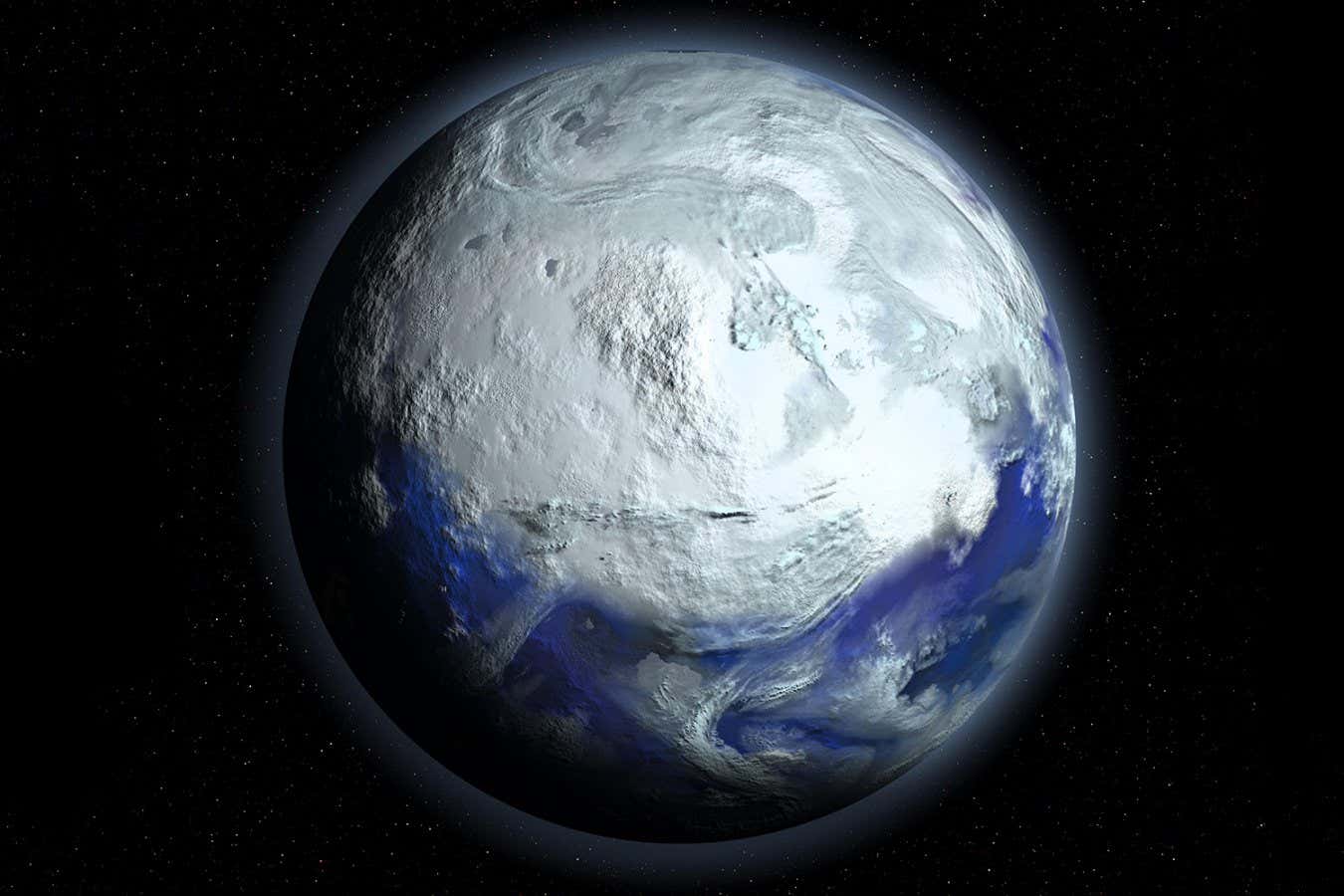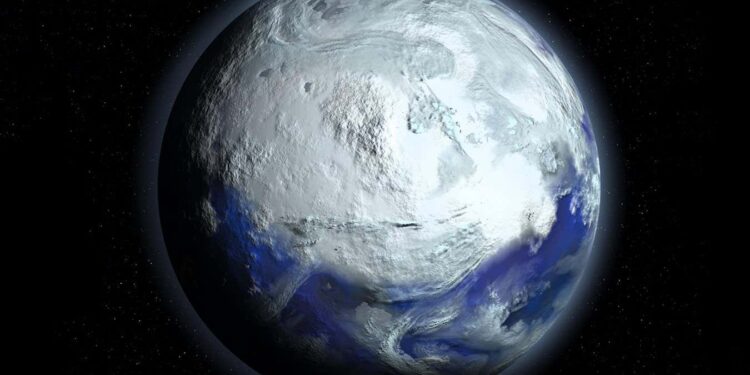[ad_1]

Earth during a glacial period
Zoonar/Alexander Savchuk/Alamy
Without human-induced climate change, Earth may have been on track to plunge into another glacial period within 11,000 years. This long-term forecast of the planet’s “natural” climate is based on a new analysis of how wobbles in the shape of its orbit and the tilt of its axis combine to change the amount of solar energy reaching the planet.
For millions of years, these orbital oscillations – known as Milankovitch cycles – brought the planet in and out of glacial periods about every 41,000 years. But the past 800,000 years have seen these glacial cycles, also known as ice ages, occur only every 100,000 years or so. The term ice age can be used to refer to any time there was ice at Earth’s poles, as there is now, though it is also commonly means periods of widespread glaciation.
Ambiguities in the record of when ice sheets advanced and retreated meant it wasn’t possible to explain how orbital changes were involved in driving this longer cycle, a mystery known to palaeoclimatologists as the “100 thousand year problem”.
Where previous studies tried to link changes in orbit to specific periods like the onset of an ice age, Stephen Barker at Cardiff University, UK and his colleagues took a new tack. They looked at the overall patterns of how glacial periods, also called ice ages, fade and return during the intervening “interglacials”. This enabled them to link changes in orbit with changes in ice – despite fuzziness in the ice record over the past million years.
They found these 100,000-year cycles appear to follow a straightforward rule. For the past 900,000 years, every interglacial has occurred after Earth’s axis wobbled at its furthest point from the sun as the planet was also tilting closer towards the sun, following the most circular phase of its orbit.
This suggests all three of these aspects of Earth’s orbit – known as precession, obliquity and eccentricity – combine to create the 100,000-year glacial cycle, says Barker. “Since 900,000 years ago this simple rule predicts every one of those major glacial termination events. This tells us that it’s really quite easy to predict,” he says.
Based on that rule, and absent the warming influence of our greenhouse gas emissions, we could expect the next interglacial period following the one we are currently living in – known as the Holocene – to begin around 66,000 years from now. But that “could only start if there was a glacial period before then”, says Barker.
The phasing of obliquity and precession that preceded the Holocene suggests glaciation would be likely to be well underway between 4300 and 11,100 years from now. We might even be currently living at what would have been the onset of this next glacial period. “Of course, that’s only in a natural scenario,” says Barker.
The more than 1.5 trillion tonnes of carbon dioxide humans have emitted into the atmosphere since the industrial revolution are expected to cause enough warming to disrupt this long-term glacial cycle.
“The amount we’ve already put into the atmosphere is so great that it will take hundreds to thousands of years to pull that out via natural processes,” says Barker. However, he says more research is needed to define Earth’s future natural climate in more detail.
This is in line with earlier modelling that suggests rising CO2 levels due to anthropogenic emissions will prevent the onset of the next glacial period for tens to hundreds of thousands of years, says Andrey Ganopolski at the Potsdam Institute for Climate Impact Research in Germany.
However, he says even pre-industrial levels of CO2 in the atmosphere may have been high enough to delay the advance of the ice sheets by 50,000 years. That is due to the unusually minor orbital variations expected in coming millennia and the unpredictable way Earth responds to those changes.
Topics:
- climate change/
- global warming
[ad_2]
Source link : https://www.newscientist.com/article/2470262-we-now-know-how-much-emissions-have-delayed-the-next-glacial-period/?utm_campaign=RSS%7CNSNS&utm_source=NSNS&utm_medium=RSS&utm_content=home
Author :
Publish date : 2025-02-27 19:00:00
Copyright for syndicated content belongs to the linked Source.














